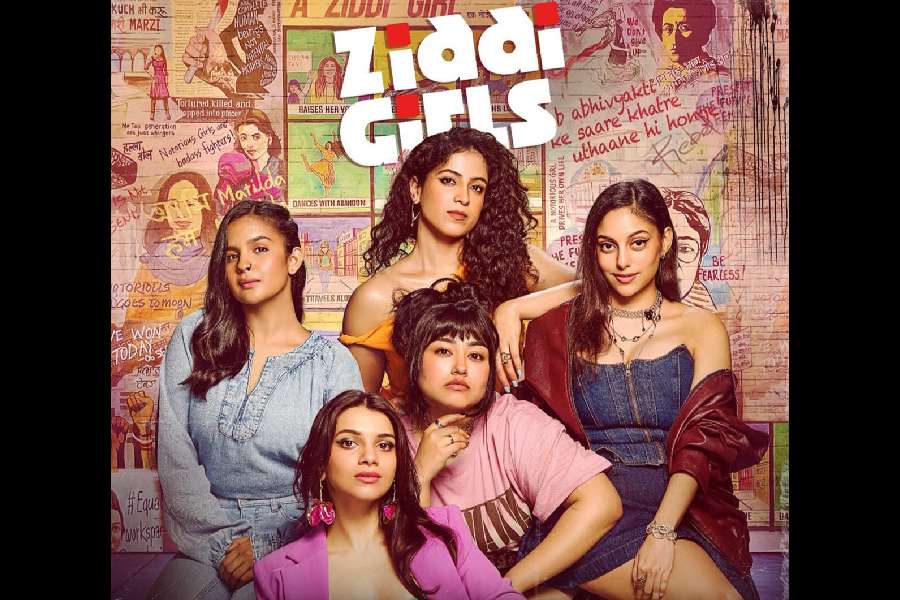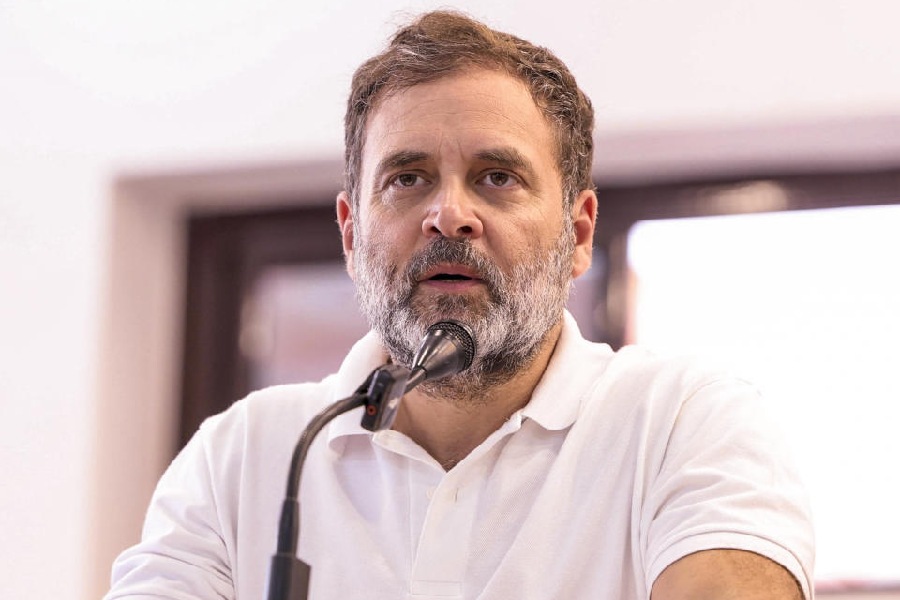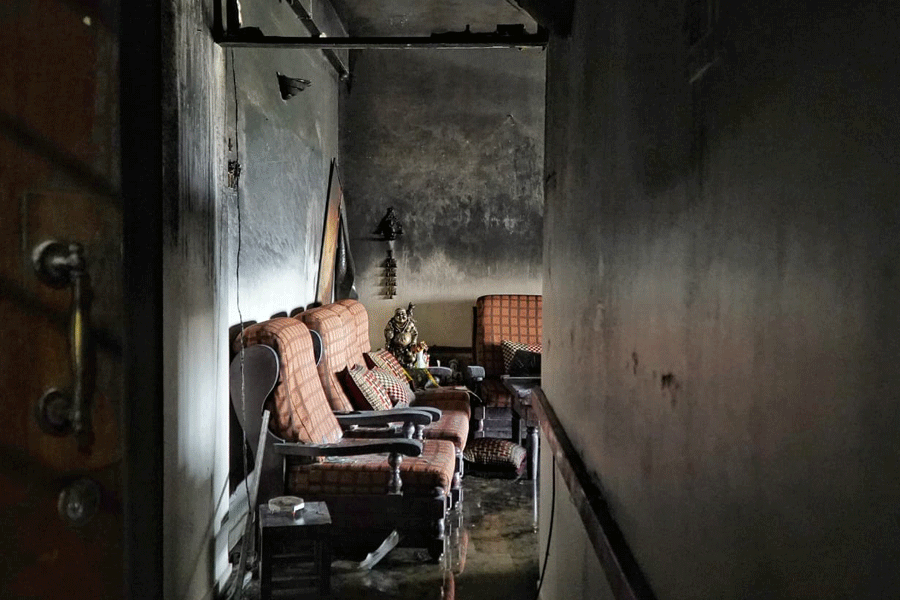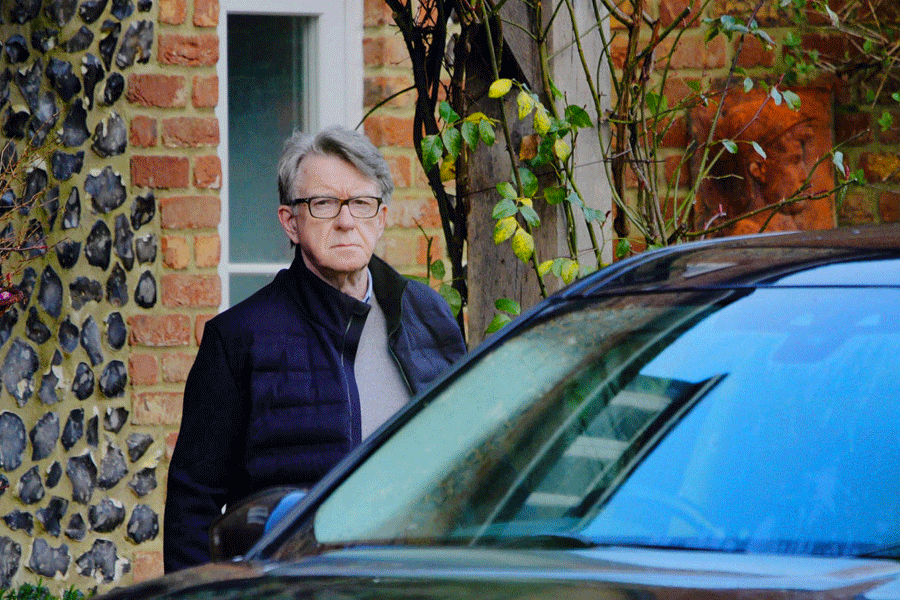Ziddi Girls, now streaming on Prime Video, is set in a fictional Delhi college called Matilda House and follows five students navigating their journey of self-discovery. t2 chatted with co-directors Shonali Bose, Neha Veena Sharma and Vasant Nath as well as creator Rangita Pritish Nandy about the show which has taken audiences back to college but has also been mired in controversy, with Delhi’s prestigious educational institution Miranda House issuing a legal notice to the makers for what it said were similarities between the college and Matilda House. Over to the makers...
What has the response to Ziddi Girls been like so far?
Rangita Pritish Nandy: We have had people reaching out to us saying wonderful things. I am surprised because it includes those who are not the TG of the show. Our target audience is young adults but many who have reached out were students 20-25 years ago. For them, Ziddi Girls is a charming walk down memory lane.
Neha Veena Sharma: The husband of my best friend watched the whole show on a flight from Singapore to Delhi and as soon as he landed, he messaged saying: ‘You guys have created something so bold, original and strong’. I wasn’t expecting a man in his 40s to say that a show like Ziddi Girls took him back to his St. Stephen’s College days. That was surprising and amazing.
Also, we were at a gathering of the cast and crew recently and the mother of one of our music composers, Nayantara, came up to me. The mother is probably in her 50s or 60s and she said that we had created an intergenerational story. She said it took her back to her days of activism in college and of bonding with her friends. The daughter said that making music for the show helped her find a way to connect with her mother and her experiences. I am very happy with the wide-ranging resonance that the show has achieved.
Vasant Nath: There was a group of girls I had interviewed during research. A response from one of them said: ‘10 on 10, thank you for doing us justice’. That was my favourite. The other favourite was a response that came to Shonali (Bose) from a student that said in one sentence: ‘I have healed’. There have been lots of wonderful stuff but these two stand out for me.
Shonali Bose: Nilesh Maniyar, my creative partner for 15 years, is one of my toughest critics. We have had four collaborations, but he had nothing to do with Ziddi Girls. After watching it, he wrote us a long piece, firstly saying bravo for making it and secondly that he would show it to those who weren’t aware what Delhi University was like. He said he wished every young person in the country watched it. He also said what an enlightening show this was, as well as how entertaining and technically strong it was.
What triggered Ziddi Girls?
Rangita: Authentic stories about young women are very rare. Our content features a lot of young women, but they do things that are not familiar to us. They don’t represent who we were when we were young. They don’t represent the generation that is now. I have missed the presence of a really good campus show. I love telling stories about young women, about women in general. To be able to mix the two and put together Ziddi Girls was the dream.
Shonali: I wasn’t there at the start, the show came to me fully written. For six months, Rangita and Ishita (Nandy) chased me and begged me to read it...
Rangita: We literally begged!
Shonali: I said: ‘No, I am not doing it’. But then, just out of embarrassment, I was like: ‘Okay, I will just read the pilot’. I thought I would say that I couldn’t go through the pilot and that I couldn’t direct it.
I was in New York and I started reading. I was only planning to read one episode and sleep but I stayed up till 3am and read all the 10 episodes! I had all kinds of reactions... I was shivering, I was crying, I had goosebumps, I was in a state of euphoria. I felt that they had gone under my skin and into my body and written the show. It was just so me! I also felt it was authentic, real, honest, personal... and also that the personal is political. That has always been the case for me.
It is important to me that you as a young person are not just in college to study; you are there to understand the world, understand yourself and raise your voice. If young people don’t raise their voices today, then the world will be a very grim place. I loved that it came with lots of drama, amazing sisterhood and a coming-of-age story. There is a progressive, relevant issue at the heart of the show.
Rangita, have you been taken aback by the controversy that has come your way for the show or were you prepared for it?
Rangita: I have realised that in this country, you can make anything and there will be somebody who will raise a voice against it. The fact that they are raising a voice means that you have made something that is relevant. If it was fluff, you wouldn’t even be noticed. Being noticed in the sea of content that is pushed out today is tremendous.
Of course, the attention we received came from a space of misinformation. Now that the show is out, it is important that the same people go back and watch the show and see whether what they were protesting against holds any ground. I think not.
What was the most exciting prospect of revisiting your own college-going days through this show?
Rangita: I had never been in an all-girls educational institution. I wanted to shoot in Miranda (House) because I have been in co-ed institutes throughout my life. I have never known a world without men... in fact, I have known a world without women, sometimes. That was a big, gaping hole in my education that got filled with this show.
Neha: It was the same for me. When I first entered Lady Shriram College in Delhi University, I was like: ‘I only want to go to this college’. Before that, I had never experienced this beast called an all-girls college. When I entered class, I found myself in the company of exceptional women. When I entered campus, there would be the sense of: ‘Okay, this is a safe space’. It was a space where you could wear anything, talk anyway, look sexy... you could either turn up looking very hot or you could be in your sleepwear. Basically, you could be anything. The minute you entered the gates, the world changed. It was so life-altering for me. Going back felt like returning to that universe of sisterhood, ambition, talent, skill, intellect, joy and laughter... of jumping class and going to the cheapest bar for a vodka shot.
It also felt like going back into my second phase of college, which is FTII, many years later and what that college gave me. I like the idea of the politics of Ziddi Girls... the idea of equality, of inclusion, of intersectionality....
Vasant: I had a group of really great friends. But there was also a group of people who were not my very close friends, but were really fascinating people. It gave me a chance to go back and re-engage with them and then through the process of imagination and gathering information to actually get to know them. I had a classmate who was a part-time priest. We have a character like that in our show.
Shonali: There is, of course, the heaviness that one goes through, but there are also fun memories that came back to me. My gang of five women... we are still best friends today.
In India, ‘ziddi’ for men is used almost as a form of endearment. But for women, it is a negative trait and indicates rebelliousness. Would you agree? Is there a way to change that or do you think it is too ingrained?
Rangita: We have had to rebel a fair amount. We have had to be stubborn, to stick our ground. We have had to yell louder than men have ever had to. Men have had it substantially easier. I don’t think it is a bad thing for us to be stubborn, and loudly so.
Shonali: It is an absolutely correct assessment that for men it is a positive thing... that you committed, stuck by your stubbornness and did something. For women, ziddi invariably means obnoxiousness, that you are not thinking of your family or society. That is what we wanted to subvert. And I think we have managed that with Ziddi Girls.










